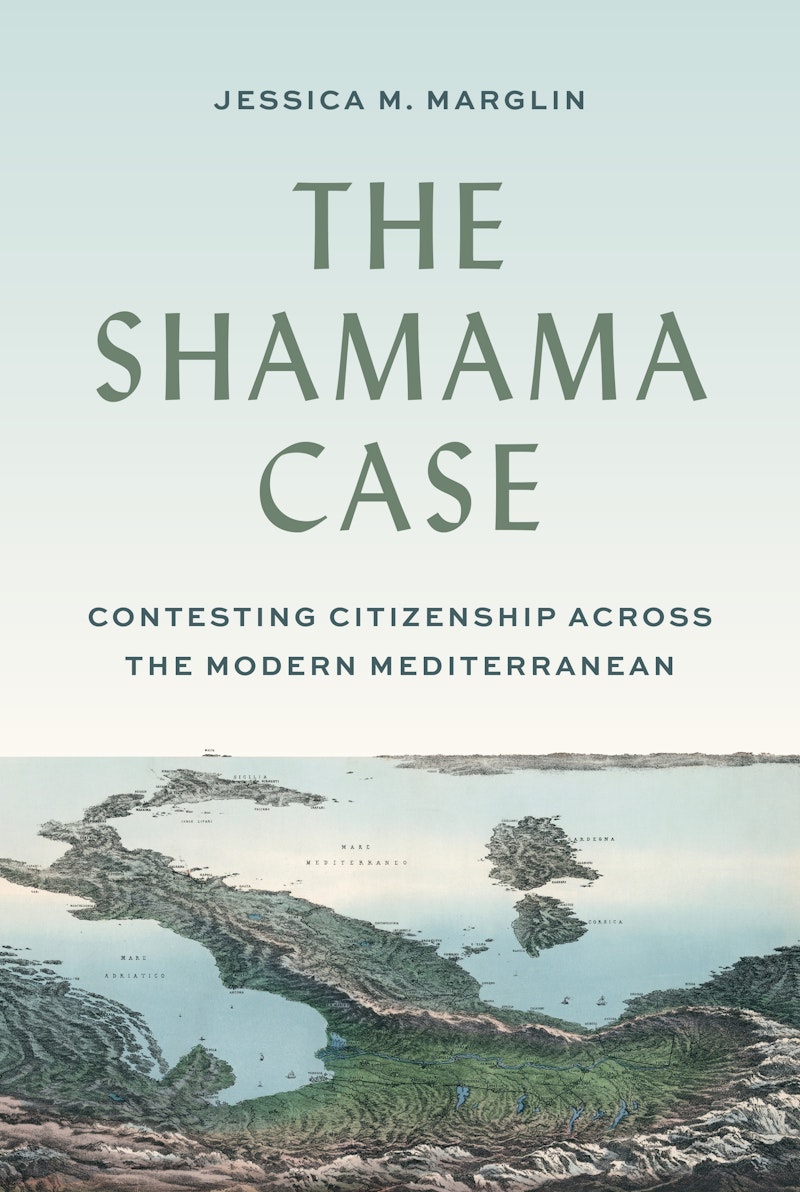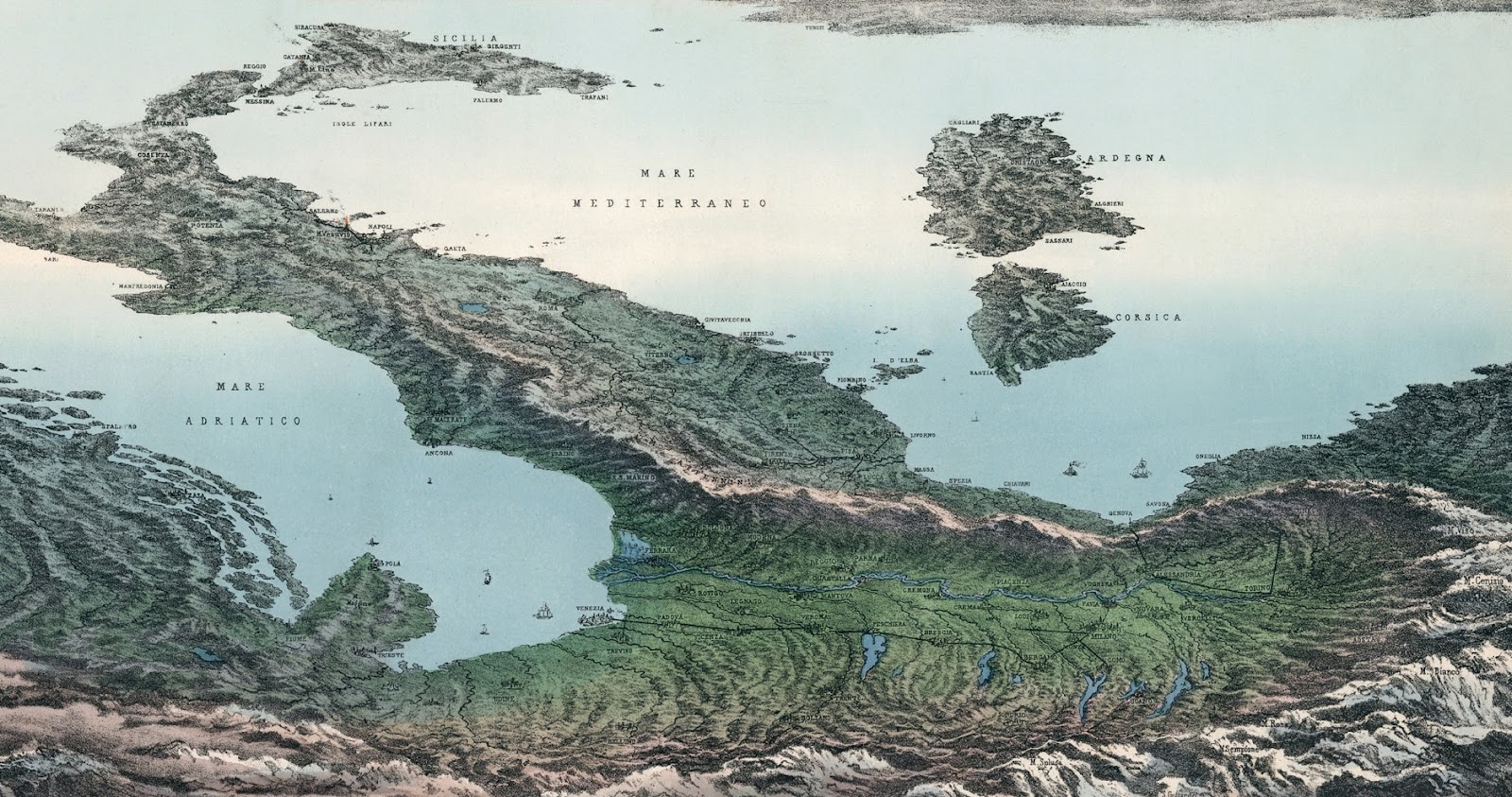Nationality on Trial in the 19th Century Mediterranean
| In 1873, Nissim Shamama died suddenly at his palazzo in Livorno. He was quietly one of the richest men in the Mediterranean. A Tunisian Jew born in the Ottoman Empire, Shamama had taken his place among the mercantile elite of a newly-unified Italy. He was a man who belonged to many places. But to whom would his vast inheritance belong? Our guest Jessica Marglin has published an award-winning book, The Shamama Case, that marshals an impressive array of archival sources to investigate how this question was resolved. As she demonstrates, the decade-long legal dispute over Shamama's estate was an international affair involving Tunisian officials, rabbis from throughout the Mediterranean, and some of Italy's foremost legal minds. In this conversation, we talk to Marglin about some of the highlights of the Shamama case, what it taught her about the history of citizenship and nationality in the 19th century Mediterranean, and the power of microhistory for disrupting conventional framings of the period.
 | Click for RSS Feed | 
|

|
In 1873, Nissim Shamama died suddenly at his palazzo in Livorno. He was quietly one of the richest men in the Mediterranean. A Tunisian Jew born in the Ottoman Empire, Shamama had taken his place among the mercantile elite of a newly-unified Italy. He was a man who belonged to many places. But to whom would his vast inheritance belong? Our guest Jessica Marglin has published an award-winning book, The Shamama Case, that marshals an impressive array of archival sources to investigate how this question was resolved. As she demonstrates, the decade-long legal dispute over Shamama's estate was an international affair involving Tunisian officials, rabbis from throughout the Mediterranean, and some of Italy's foremost legal minds. In this conversation, we talk to Marglin about some of the highlights of the Shamama case, what it taught her about the history of citizenship and nationality in the 19th century Mediterranean, and the power of microhistory for disrupting conventional framings of the period.
Contributor Bios
 |
Jessica Marglin is Professor of Religion, Law, and History, and the Ruth Ziegler Chair in Jewish Studies at the University of Southern California. She earned her PhD from Princeton and her BA and MA from Harvard. Her research focuses on the history of Jews and Muslims in North Africa and the Mediterranean, with a particular emphasis on law. She is the author of Across Legal Lines: Jews and Muslims in Modern Morocco (Yale University Press, 2016) and the co-editor, with Matthias Lehmann, of Jews and the Mediterranean (Indiana University Press, 2020). |
 |
Brittany White is a graduate student in the Department of History at the University of Virginia. Broadly, she is interested in the African Diaspora in former Ottoman territories. |
Credits
Episode No. 554
Release Date: 27 November 2023
Sound production by Brittany White and Chris Gratien
Music: Chad Crouch
Bibliography and images courtesy of Jessica Marglin
Release Date: 27 November 2023
Sound production by Brittany White and Chris Gratien
Music: Chad Crouch
Bibliography and images courtesy of Jessica Marglin
Further Listening
 |
Sarah Abrevaya Stein | 434
11/20/19
|
Family Papers and Ottoman Jewish Life After Empire |
 |
Devi Mays | 417
7/4/19
|
Mexico and the Modern Sephardi Diaspora |
 |
M’hamed Oualdi & Hayri Gökşin Özkoray | 362
5/15/18
|
Slavery and Servitude in the Ottoman Mediterranean |
 |
Christopher Silver | 498
3/22/21
|
The Maghreb in the Gramophone Era |
 |
Kristen Alff | 438
12/3/19
|
Local Capitalists in the Late Ottoman Levant |
Images

‘Aziza, Moshe, and Nissim Jr., 1868 (courtesy of Gilles Boulu)

Tunis and its environs, with Nissim Shamama’s sixty-six properties, circa 1873

Shamama Coat of Arms (Archivio Centrale dello Stato, Presidenza del consiglio dei ministri, consulta araldica, fascicoli nobiliari e araldici delle singole famiglie, Busta 9, Semama, Nissim e Moisè)
Bibliography

Allagui, Abdelkrim. Juifs et Musulmans en Tunisie : Des Origines À Nos Jours. Paris: Tallandier/Projet Aladin, 2016.
Bargaoui, Sami, Simona Cerutti, and Isabelle Grangaud, eds. Appartenance locale et propriété au nord et au sud de la Méditerranée. Aix-en-Provence: Institut de recherches et d'études sur les mondes arabes et musulmans, 2015.
Ben Ismail, Youssef. “Sovereignty across Empires: France, the Ottoman Empire, and the Imperial Struggle over Tunis (Ca. 1830-1920).”Ph.D. Thesis, Harvard University, 2021.
Ben Rajeb, Ridha. Yahūd al-bilāṭ wa-yahūd al-māl fī tūnis al-‘uthmānīyati. Beirut: Dār al-mudār al-islāmī, 2010.
Ben Slimane, Fatma. “Définir ce qu’est être tunisien : litiges autour de la nationalité de Nessim Scemama (1873-1881).” Revue des mondes musulmans et de la Méditerranée 137 (May 2015): 31-48.
———. “Entre deux empires : l’élaboration de la nationalité tunisienne.” In Maghreb Et Sciences Sociales, 107-18. Tunis: L'Harmattan-IRMC, 2012.
Can, Lâle. “The Protection Question: Central Asians and Extraterritoriality in the Late Ottoman Empire.” International Journal of Middle East Studies 48 (2016): 679-99.
Cerutti, Simona, and Isabelle Grangaud. “Sources and Contextualizations: Comparing Eighteenth-Century North African and Western European Institutions.” Comparative Studies in Society and History 59, no. 1 (2017): 5-33.
Clancy-Smith, Julia. Mediterraneans: North Africa and Europe in an Age of Migration, C. 1800-1900. Berkeley: University of California Press, 2011.
Cohen, Julia Phillips. Becoming Ottomans: Sephardi Jews and Imperial Citizenship in the Modern Era. Oxford: Oxford University Press, 2014.
Donati, Sabina. A Political History of National Citizenship and Identity in Italy, 1861-1950. Stanford, CA: Stanford University Press, 2013.
Hanley, Will. Identifying with Nationality: Europeans, Ottomans, and Egyptians in Alexandria. New York: Columbia University Press, 2017.
Haruvi, Yuval. “Ha-elitah ha-toranit shel ha-‘ir Tunis be-‘idan ha-moderni, 1873-1921.” Ph.D. Dissertation, Tel Aviv University, 2013.
Herzog, Tamar. Defining Nations: Immigrants and Citizens in Early Modern Spain and Spanish America. New Haven: Yale University Press, 2003.
Ibn Abī al-Ḍiyāf, Aḥmad. Itḥāf ahl al-zamān bi-akhbār mulūk Tūnis wa-‘ahd al-amān. Tunis: Al-Dār al-Tūnisīya lil-Nashr, 1989.
Isin, Engin F. “Citizenship after Orientalism: Ottoman Citizenship.” In Citizenship in a Global World : European Questions and Turkish Experiences, edited by E. Fuat Keyman and Ahmet İçduygu, 31-51. London: Routledge, 2005.
Koskenniemi, Martti. The Gentle Civilizer of Nations: The Rise and Fall of International Law 1870-1960. Cambridge: Cabridge University Press, 2001.
Larguèche, Abdelhamid. Les ombres de la ville : Pauvres, marginaux et minoritaires à Tunis, XVIIIème et XIXème siècles. Manouba: Centre de publication universitaire, Faculté des lettres de Manouba, 1999.
McDougall, James. “Modernity in ‘Antique Lands’: Perspectives from the Western Mediterranean.” Journal of the Economic and Social History of the Orient 60, no. 1-2 (2017): 1-17.
Oualdi, M’hamed. Esclaves et maîtres ; Les mamelouks des beys de Tunis du XVIIe siècle aux années 1880. Paris: Publications de la Sorbonne, 2011.
———. A Slave between Empires: A Transimperial History of North Africa. New York: Columbia University Press, 2020.
Philliou, Christine. Biography of an Empire: Governing Ottomans in an Age of Revolution. Berkeley: University of California Press, 2011.
Salzmann, Ariel. “Citizens in Search of a State: The Limits of Political Participation in the Late Ottoman Empire.” In Extending Citizenship, Reconfiguring States, edited by Michael Hanagan and Charles Tilly, 37-66. Lanham, MD: Rowman and Littlefield, 1999.
Stein, Sarah Abrevaya. Extraterritorial Dreams: Jews, Citizenship, and the Calamitous Twentieth Century. Chicago: The University of Chicago Press, 2016.











Comments
Post a Comment
Due to an overwhelming amount of spam, we no longer read comments submitted to the blog.